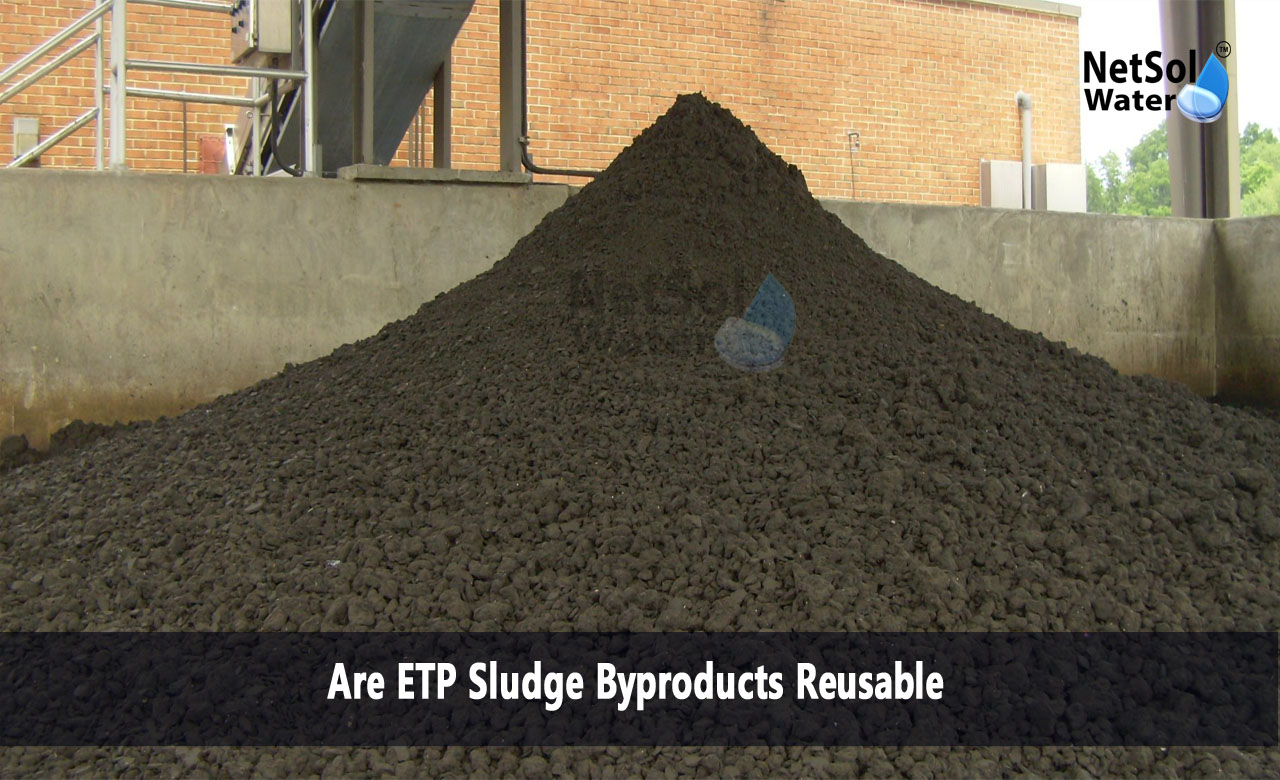Are ETP Sludge Byproducts Reusable?
Effluent treatment plants handle water from factories and industries. They capture pollutants and leave behind solid waste. People call this solid waste ETP sludge byproducts reusable. It carries nutrients and minerals that industries can turn into new items. Netsol Water stands out as a leading manufacturer of water treatment systems and byproduct reuse solutions. The company designs plants that turn waste into resources. It guides clients to transform sludge into raw materials for other processes. This change cuts landfill volumes and brings fresh value to industry. It also helps companies meet strict rules for waste control.
Composition of ETP Sludge Byproducts
Every reuse effort must begin with solid analysis. Understanding composition shows what the sludge can become. Let us have a look at some key elements
Mineral Content
Sludge often holds calcium silicate or iron oxide. These minerals appear when water mixes with industrial discharge. They can serve as raw matter for building supplies.
Organic Matter
The solids also carry bits of organic waste. This fraction comes from food or plant residue in wastewater. It can boost soil when managed safely.
Moisture Level
Sludge carries high water content at first. It needs dewatering to become stable. Drying turns it into a form that systems can handle.
Potential Applications of Reuse
Knowing the composition leads us to possible uses. Each use can bring fresh demand for byproducts. Let us have a look at some fields where sludge can serve new roles
Brick Making
Manufacturers mix dried sludge with clay to shape bricks. They fire the mix in kilns and gain bricks with added strength. This step cuts demand for fresh clay.
Cement Additive
Concrete plants blend ground sludge with cement powder. The mix improves workability and reduces clinker use. This blend cuts carbon footprint in construction.
Soil Amendment
Farmers can spread treated sludge on land in small amounts. It adds nutrients and improves soil texture. This use supports plant growth and saves on fertilizers.
Processing Techniques for Reusable Byproducts
Turning sludge into a product needs clear steps. The process can meet quality needs and safety rules. Let us have a look at some key techniques
Dewatering
Plants press the sludge to squeeze out water. This step shrinks the volume and eases transport.
Stabilization
After drying the solids gain stability. Plants add binders to lock down harmful parts. This step makes the sludge safe for use.
Pelletizing
Systems roll the treated solids into small pellets. The round shape makes handling simple. Users can feed these pellets into kilns or spread them on soil.
Economic Benefits of Reuse
Industries can earn or save funds by reusing sludge. The gains matter to budgets and to long term planning. Let us have a look at some financial advantages
Cost Savings
Byproducts that plants sell cut disposal bills. Firms pay less to send sludge to landfills. This change frees cash for other projects.
New Revenue
Selling treated pellets to brick or cement makers brings fresh income. The sales can cover treatment setup costs in time.
Reduced Raw Material Bills
Mixing sludge with clay or cement lowers the need to buy virgin materials. This cut adds up over many batches.
Environmental Impact of Reusing Byproducts
Beyond money each reuse path yields green gains. Lower waste and fewer new resources protect nature. Let us have a look at some key eco benefits
Waste Reduction
Turning sludge into products shrinks what lands in dumps. Fewer truck loads go to landfill sites each year.
Resource Conservation
By cutting demand for clay or cement raw mix we spare natural sites. We also curb the quarrying that scars the land.
Emission Cuts
Using sludge in bricks or concrete trims carbon from raw material steps. This drop links to cleaner air and lower climate risk.
Conclusion
This blog has shown that ETP sludge byproducts reusable options exist across many fields. Netsol Water leads in building plants that tap these options. The firm helps clients turn waste into brick mix cement feed or soil aid. It brings simple steps that deliver clear gains in cost and environment. If you want to learn more about making ETP sludge byproducts reusable please get in touch with Netsol Water. We can design a plan for your needs and guide you through each stage. Contact us today for a consultation or for more information.
Contact Netsol Water at:
Phone: +91-9650608473, Email: enquiry@netsolwater.com



